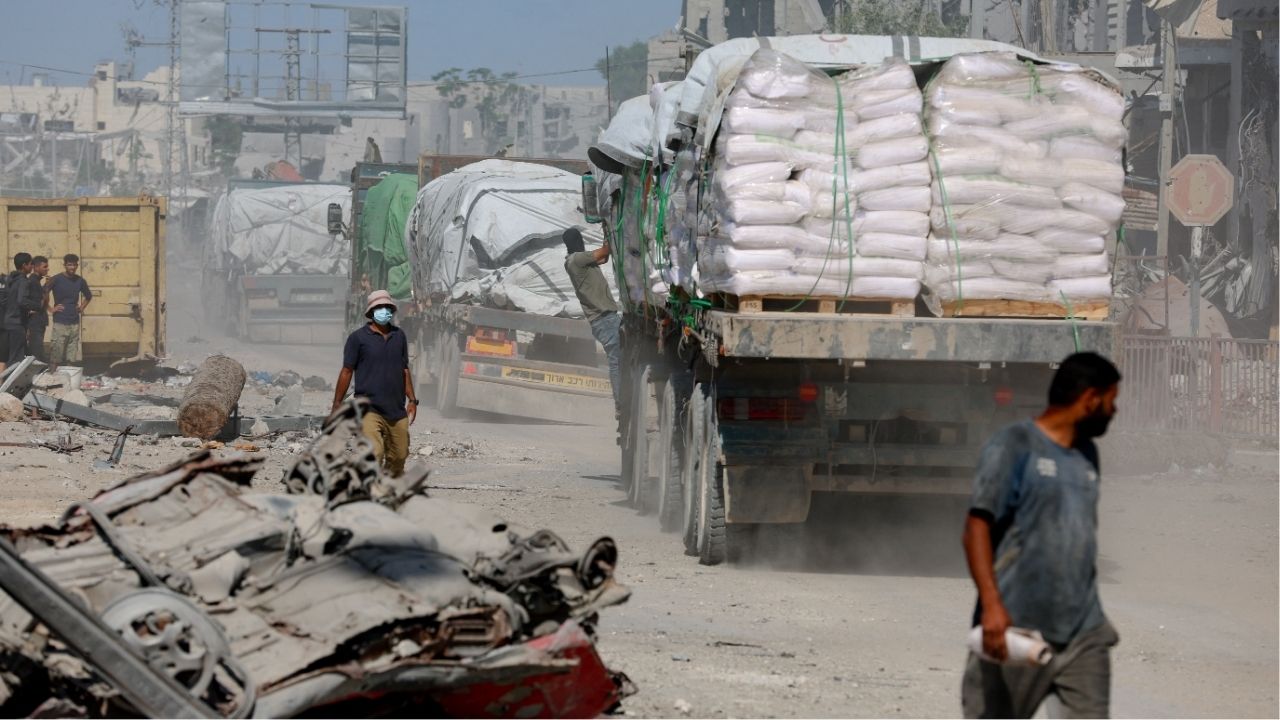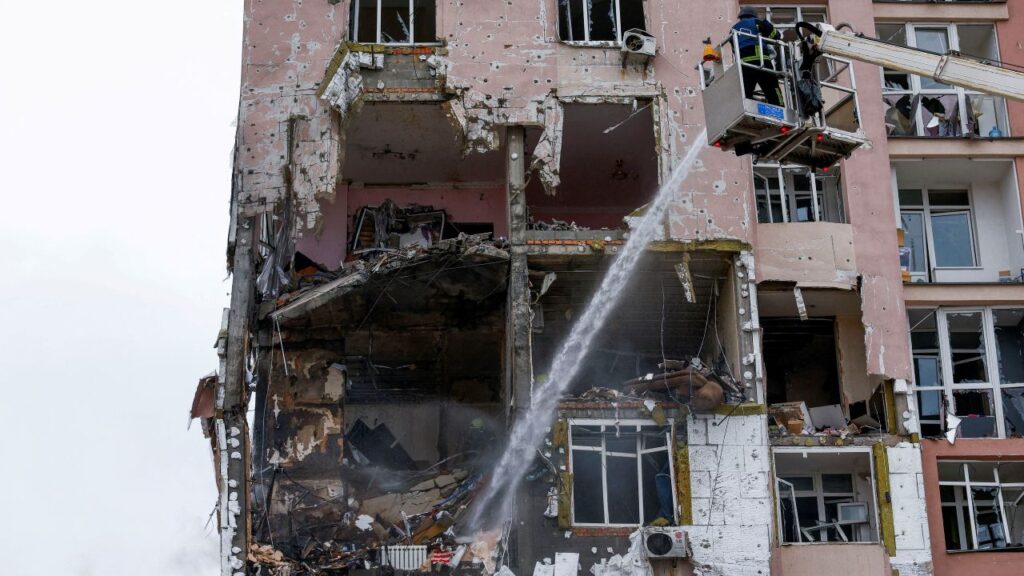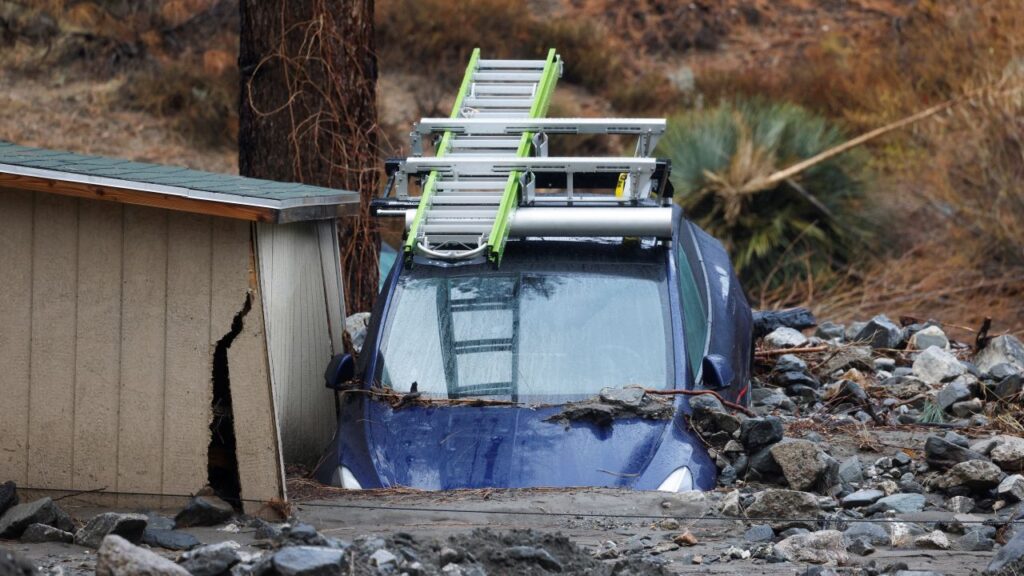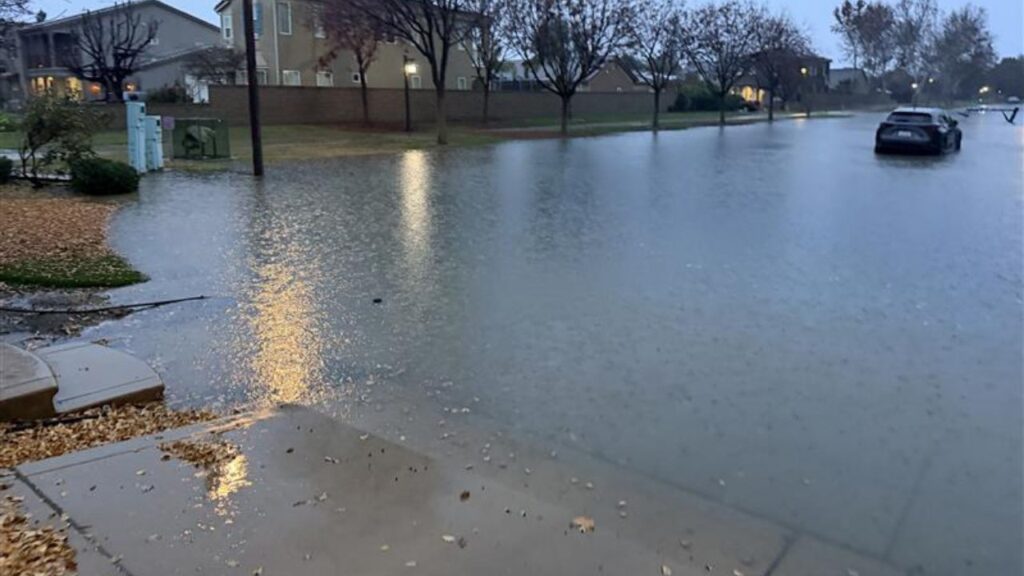Trucks carry aid for Palestinians, amid a ceasefire between Israel and Hamas in Gaza, in Khan Younis, in the southern Gaza Strip, October 14, 2025. (Reuters/Ramadan Abed)
Share
|
Getting your Trinity Audio player ready...
|
A major ramp-up of aid needed to ease famine and suffering in Gaza after two years of war has yet to happen, the Red Cross and U.N. agencies said on Tuesday, as Israeli authorities warned of slower aid flows as the southern Rafah crossing remained shut.
Three Israeli officials said Israel had decided to restrict aid into the shattered Gaza Strip and delay plans to open the border crossing to Egypt at least through Wednesday, because Hamas had been too slow to turn over bodies of dead hostages. The militant group has said locating the bodies is difficult, as not all burial sites amid the widespread rubble of Gaza are known.
Crossings Need to Open, Aid Agencies Say
“We need all crossings open. The longer Rafah stays closed the more the suffering prolongs for people in Gaza, especially those displaced in the South,” UNICEF spokesperson Ricardo Pires said.
U.S. President Donald Trump declared an end to the Israel-Hamas conflict on Monday as the last living Israeli hostages were swapped for Palestinian detainees, raising expectations that aid supplies would be rushed into the enclave where a global hunger monitor has warned hundreds of thousands of people face famine.
COGAT, the arm of the Israeli military that oversees aid flows into Gaza, said on Friday that it expected about 600 aid trucks to enter Gaza daily during the ceasefire. It did not respond to a request for further comment on Tuesday.
All of the aid so far has been through the south and central crossing of Kissufim, U.N. agencies said, with those at the epicenter of the humanitarian crisis in northern Gaza, to where tens of thousands of people are returning, still shut.
No Surge in Aid Seen Yet
“The shift has not yet happened. We are still witnessing only few trucks coming in, and large crowds approaching these trucks in a way that does absolutely not conform to humanitarian standards,” ICRC spokesperson Christian Cardon told reporters in Geneva on Tuesday.
Turkish President Tayyip Erdogan said only some 350 humanitarian aid trucks have entered Gaza in the last few days.
The U.N. World Food Program said on Tuesday that it has brought in 137 trucks since the weekend, noting it also has not yet seen a ramp-up in aid. None of its aid entered Gaza on Monday because of the hostage-prisoner exchange, it added.
Aid agencies are seeking to rapidly scale up supplies to people in Gaza City, where up to 400,000 people have not received assistance for several weeks, according to the WFP.
UNICEF spokesperson Tess Ingram said it has been able to bring in dozens of trucks with lifesaving supplies, such as family tents, plastic tarpaulin sheets, winter clothes and hygiene kits.
“Hopefully scale-up can be seen in earnest later this week,” she added.
Agencies Face Ongoing Restrictions
Around 50 international aid groups, including the Norwegian Refugee Council, CARE and Oxfam, have still not received clearance for supplies to enter as they face ongoing registration barriers.
“We’re in this limbo … The needs of a population that has experienced famine over a period of months is not going to be met with a few trucks,” Bushra Khalidi, an Oxfam policy adviser said.
COGAT previously said that aid trucks operated by the U.N. and “approved international organizations”, the private sector, and donor countries would be allowed to enter Gaza.
Catholic Relief Services has, however, received permission to bring in supplies with shelter as a priority, Jason Knapp, an official with Catholic Relief Services, told Reuters from Gaza.
—
(Reporting by Olivia Le Poidevin; Additional reporting by Jonathan Spicer in Istanbul, Maayan Lubell in Jerusalem and Nidal al-Mughrabi in Cairo; Editing by Sharon Singleton)



















